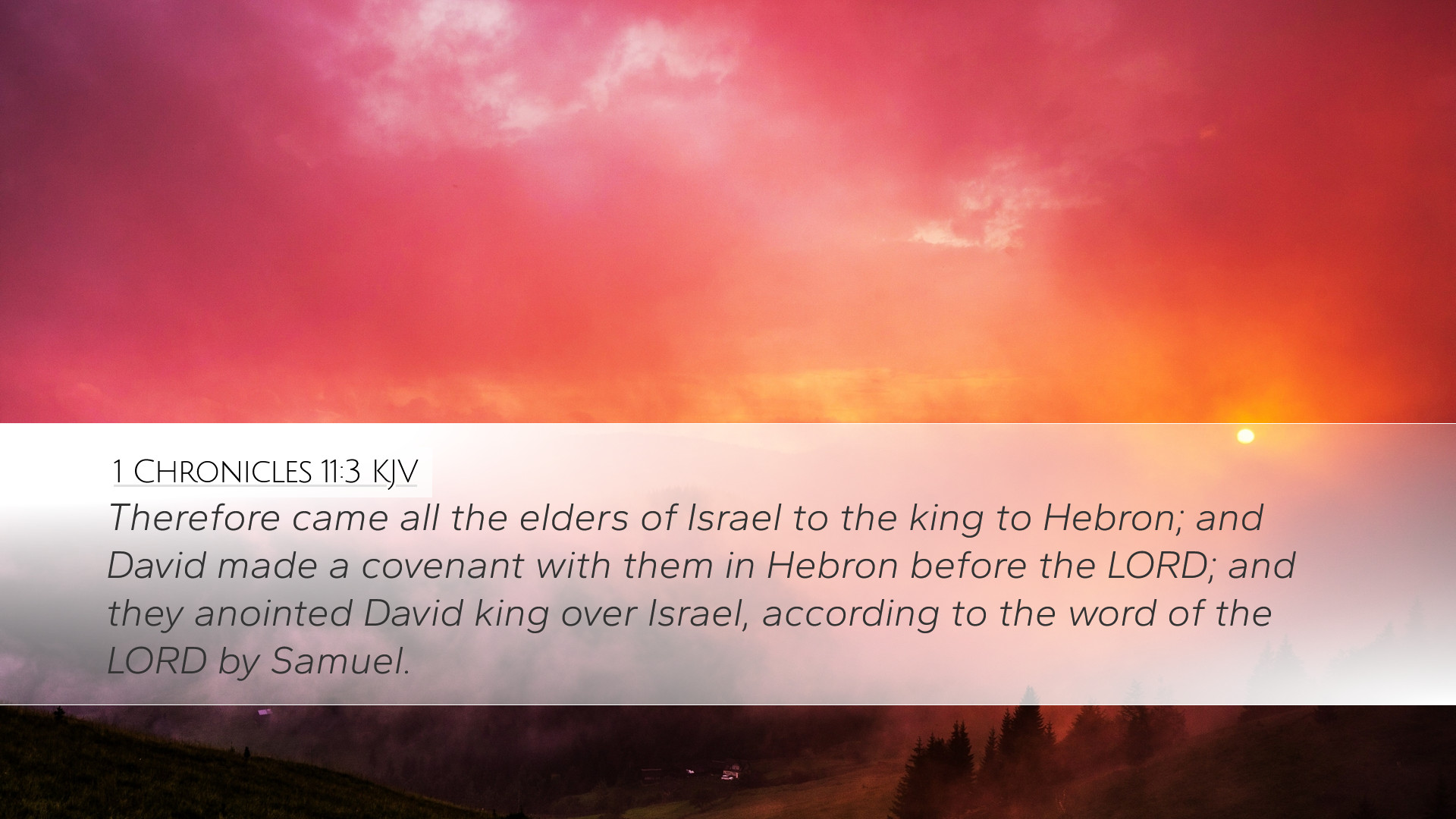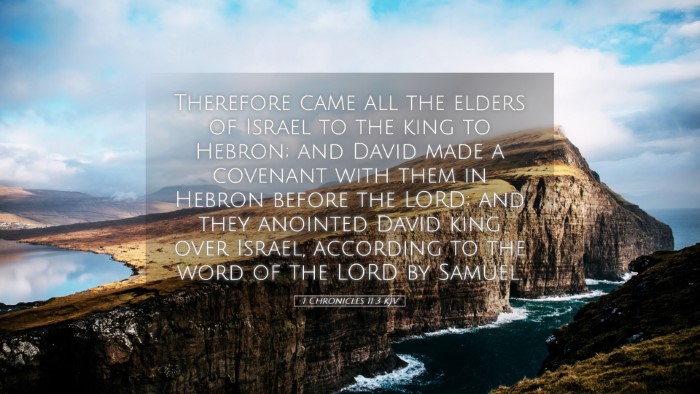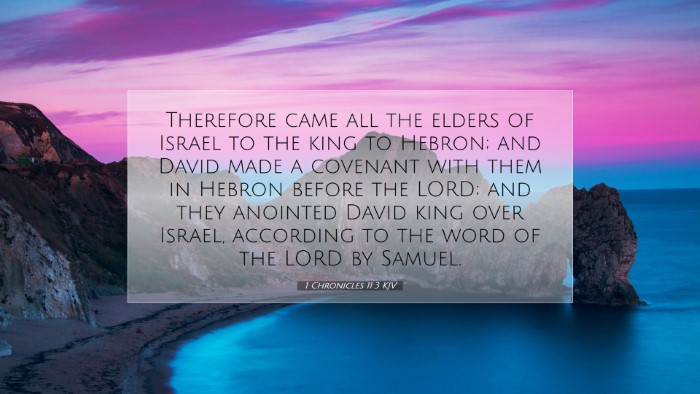Commentary on 1 Chronicles 11:3
Verse: "Therefore came all the elders of Israel to the king to Hebron; and David made a covenant with them in Hebron before the LORD: and they anointed David king over Israel, according to the word of the LORD by Samuel."
Introduction
The anointing of David as king over Israel represents a significant turning point in the history of Israel. This event is not only a political shift but also one deeply entrenched in spiritual and divine promise. The elders of Israel come together, signifying unity and recognition of David’s divinely ordained leadership, which is affirmed by the prophet Samuel.
Historical Context
This passage occurs after the tumult of Saul's reign, where Israel faced considerable challenges and divisions. David's rise is marked by his faithfulness to God during his time of adversity. His anointment signifies the fulfillment of God's promise to him and sets the stage for the establishment of Israel as a united monarchy under God's blessing.
Insights from Matthew Henry
Matthew Henry emphasizes the significance of David's covenant with the elders. He notes that this covenant was not merely a political agreement but a solemn commitment made before the Lord. This act highlights the importance of divine endorsement in human leadership. Henry also points out that while David had been anointed previously, this public endorsement by the elders confirmed that God’s choice was now acknowledged by the people, ensuring that David's reign was legitimate and authoritative.
Insights from Albert Barnes
Albert Barnes provides a detailed analysis of the phrase "before the LORD." He stresses that this act of making a covenant and anointing was done with the recognition of God's sovereignty. Barnes also notes the importance of the geographical reference to Hebron, which served as a symbolic heart of Judah and a pivotal site in David's early reign. This location underscores the transition from division to unity among the tribes of Israel. He articulates that David's kingship was not solely because of human decisions but rooted in divine providence and specific instructions given to Samuel.
Insights from Adam Clarke
Adam Clarke draws attention to the unity brought about by the elders' decision to gather in Hebron. He highlights that this moment symbolizes the collective recognition of God's chosen leader. Clarke further elaborates on the anointing itself, describing its significance in the cultural and religious context of Israel, where anointing was a sacred act that involved oil, symbolizing the Holy Spirit. He explains that David's leadership was characterized by a deep reliance on God, which set the foundation for his future governance and successes.
Theological Implications
- Divine Sovereignty: This passage reaffirms the belief that earthly leaders are established by God's will, a theme that echoes throughout Scripture.
- Covenant Relationship: The covenant between David and the people of Israel reflects the broader theme of covenant in the Biblical narrative, where God establishes relationships based on mutual commitment.
- Unity in Leadership: The coming together of the elders symbolizes the need for unity in the body of Christ today, emphasizing collaborative leadership under God's guidance.
Practical Applications
As contemporary pastors and leaders reflect on this passage, several applications arise:
- Seeking Divine Guidance: Just as David sought God's approval, modern leaders must prioritize prayer and discernment in their decisions.
- Recognizing God’s Authority: Acknowledge that leadership is a stewardship role wherein leaders serve with an awareness of God's ultimate authority.
- Fostering Unity: Encourage an atmosphere of unity and collective decision-making within the church community, mirroring the elders' approach in recognizing David as king.
Conclusion
The anointing of David as king in 1 Chronicles 11:3 is a profound moment that encapsulates themes of divine sovereignty, covenant, and the essential nature of unity in leadership. Public domain commentaries from Henry, Barnes, and Clarke provide rich insights that not only illuminate the historical and cultural context of this event but also invite contemporary leaders to reflect on their roles as stewards of God's church. This passage ultimately serves as a reminder that true leadership is marked by humility, a seek for divine guidance, and a commitment to serving God's people with integrity and grace.


